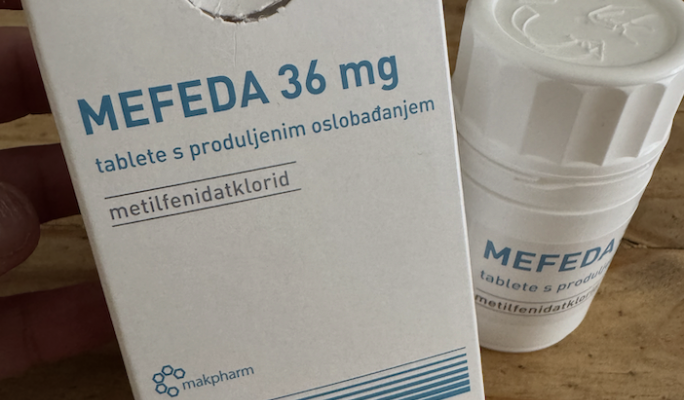Patients with ADHD, receiving free medication from the government, are unable to know the side effects since product leaflets are not in English, MaltaToday has learnt.
Several parents of children with ADHD, and young adults who are themselves patients, have told MaltaToday that the patient information for the medicine Mefeda, a stimulant, being provided by the Pharmacy of Your Choice scheme, is only available in Croatian.
Mefeda is the generic alternative to Concerta, which is normally prescribed by psychiatrists.
“My son has just been shifted to Concerta but the POYC is currently offering Mefeda instead and when I arrived home from the pharmacy, I realised that the leaflet in the box had no information in English,” a concerned mother told MaltaToday. She added: “I would like to know what side effects Mefeda has and I find it hard to believe that every other medicine purchased from a pharmacy has to, by law, have a patient information leaflet in English but this controlled medicine does not.”
Her concern was replicated by other parents and patients, whose names have been withheld to protect their privacy.
Ironically, the first two words on the product leaflet included with Mefeda—Pažljivo pročitajte—translate into ‘Read carefully’, that is if you know how to read Croatian.
All medicines distributed in Malta must be authorised by the Medicines Authority and one of the conditions is that the product literature include an English version, or a professionally translated version that is attached to the box.
But it seems, the law does empower the authority, in exceptional circumstances, to allow medication to be distributed without a marketing authorisation if this is justified for public health reasons.
A spokesperson for the Health Ministry confirmed that Mefeda is one such medicine that has been granted an exemption.
“This was done to ensure a seamless provision of this medication to patients,” the spokesperson said, adding that some other medicines provided by the POYC have also been made available and distributed on the Maltese market under the same exemption clause.
Brexit impacted medicines in English
Justifying the distribution of medicines with no English-language information, the spokesperson said this “depends on how successful the procurement efforts are in securing bidders”.
“It is to note that the procurement of medication in the English language has unfortunately been severely impacted by Brexit,” the spokesperson said, adding that the number of medicines procured by the Central Procurement and Supplies Unit (CPSU), a government department, and distributed by POYC, varies from time to time.
However, the ministry said an officially translated patient information leaflet in English for Mefeda and other medicines like it does exist but these are not distributed with the product when pharmacy orders are processed. Instead, these information leaflets are made available to community pharmacies participating in the POYC scheme as “attachments with email circulars”.
The ministry spokesperson said patients who need access to translated information about their medicine “may be provided one by asking their community pharmacist directly” or by sending an email to the POYC.
However, a pharmacist who spoke to MaltaToday lamented the POYC’s decision to shift the responsibility of printing out the literature onto the pharmacies. The literature is several-pages long, and having to do so for each and every patient entitled to such medicines is unfeasible, the pharmacist said.
“Not all customers are technologically-savvy and some would want a physical copy of the documentation, which is perfectly understandable,” the pharmacist said. “But it makes no sense for us to print pages upon pages of information—it is a waste of our time and an expense, which is being lumped on to us because POYC does not take the step to supply us with the documentation in the first place.”
The ministry told MaltaToday that to better address the situation it will be launching an app, from where patients can access the medicines’ literature from their own mobile phone at any time. No timeline was given for the unveiling of this app.
However, it will still not solve the problem for those who are technologically-challenged and who would rather have a physical, printed copy of the medicine leaflet.
Meanwhile, patients continue to be supplied with medicines for which information in English is not readily available.
Patients can email POYC to receive a copy of the medicine information leaflet in English: [email protected]
